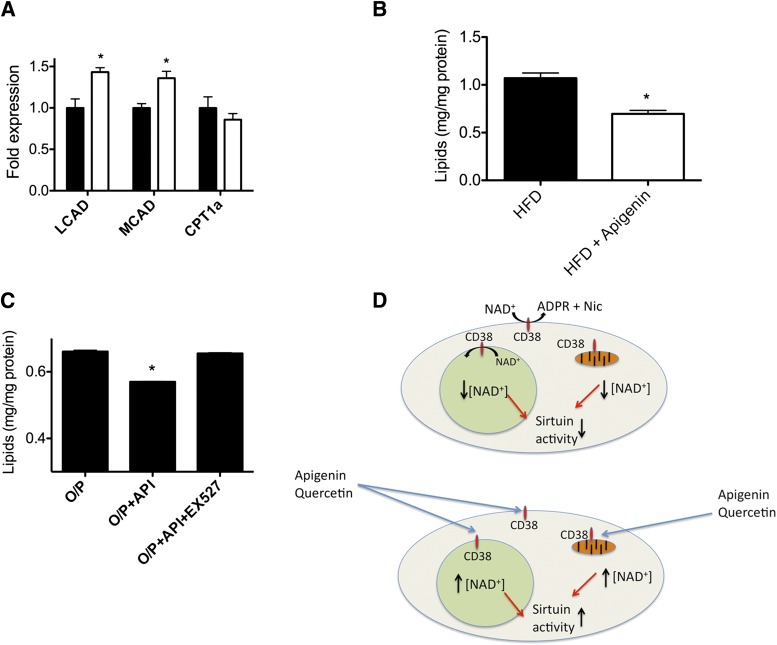FIG. 8.
CD38 inhibition by apigenin promotes fatty acid oxidation in the liver. A: mRNA expression of lipid oxidation markers LCAD, MCAD, and CPT1a in the liver measured by RT-PCR in mice treated with apigenin (□) or vehicle (■) (*P < 0.05, n = 6 per group). B: Total triglyceride (TG) content in the liver of mice treated with apigenin or vehicle (*P < 0.05, n = 6 per group). HFD, high-fat diet. C: Total triglycerides levels in HepG2 cells incubated with 0.5 mmol/L oleate/palmitate (O/P) (2:1 ratio), oleate/palmitate plus 25 μmol/L apigenin (API), or oleate/palmitate plus apigenin plus 10 μmol/L EX527 (*P < 0.05, n = 3). D: Working model for apigenin and quercetin effect on CD38. In cells, CD38 maintains low intracellular NAD+ levels with a consequent low sirtuin activity. The inhibition of CD38 in different subcellular compartments leads to an increase in NAD+ levels, which becomes available for sirtuin activation. We propose that the effect of apigenin will activate nuclear and cytoplasmic and also mitochondrial sirtuins, where CD38 has been shown to be expressed.

